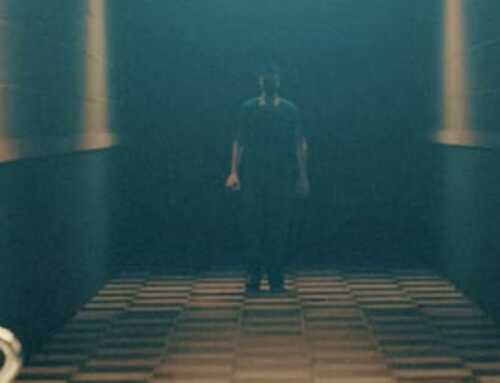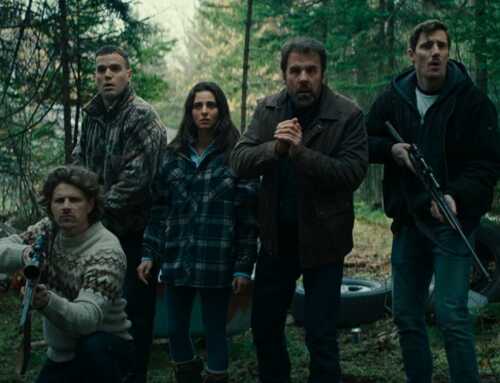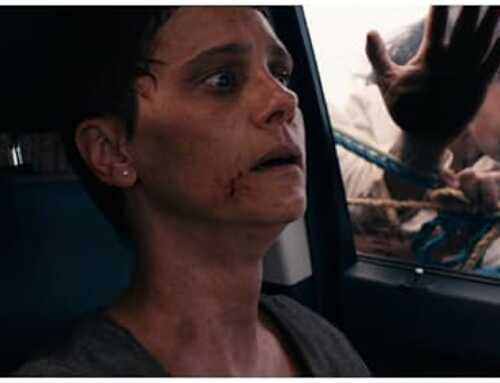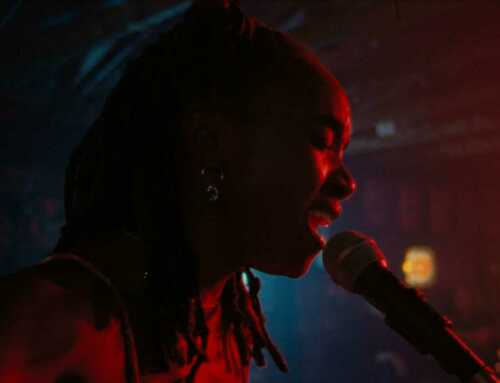The Family opens with a quote from Plato’s Republic, specifically the allegory of the cave. Without going into too much detail, the story boils down to the only reality people have known while living in a cave, and that being freed from this perceived reality allows people to understand higher realities. It’s a perfect table-setter for this.
The story is set in an earlier century, on a farm in the middle of the woods. Mother (Toni Ellwand) and Father (Nigel Bennett) watch over their children with an iron fist. They keep their children obedient through hard labor and threats of a vengeful god. The children are kept on the farm by an established perimeter that, if breached, will invoke the wrath of their god. While Mother and Father clearly have been abusive in establishing this status quo, they have all settled into this routine and there seems to be a tenuous peace amongst the family. This changes with the appearance of a new family member. From there, it becomes a power struggle, with the children questioning everything they have been told their entire lives.
The Family is a beautifully shot, beautifully staged period piece. Director Dan Slater has created a convincing, engrossing world around his characters. Shadows creep in on the family, a constant reminder of Plato’s story quoted at the beginning. The detailed production design adds to the oppressive, cold feeling of the period. Inside the house, old tools and instruments hang on the walls, giving the house a menacing, almost violent feeling of dread. It’s an engrossing, comprehensive creation that pulls in an audience and doesn’t let them go for the entire narrative.
The cast, across the board, turns in strong performances. Most notably, Ellwand and Bennett as Mother and Father are menacing and horrifying. They spout fire and brimstone, always on the cusp of violence to drive home their points. Amongst the children, Benjamin Charles Watson (as son Caleb) and Jenna Warren (as daughter Abigail) are the stands out. Watson, as the son who first challenges his parents, can alternate between bold and commanding and submissive and obedient. Watson displays an impressive range of emotions in his role as Caleb. Jenna Warren, as Abigail, has the most compelling arc of all the children. Warren, like Watson, is able to convey the obedience that is expected of such a character. But what makes her most watchable is when she takes control of her situation. Warren gives Abigail a life and a fire, and you can’t help but cheer for her as she breaks the chains that have held her down her entire life.
Also very notable is the score, by Dillon Baldassero. It’s overwhelmingly unsettling at moments, not only just underscoring the dread of scenes but very much adding to it. At its goosebump-inducing best, the score is in the same vein as the ones produced by Jonny Greenwood for P.T. Anderson’s films. They are clunky and uncomfortable, full of non-traditional sounds and instruments.
The narrative itself is very compelling. It examines shifting power dynamics, religious extremism, and the bond amongst siblings. The film is at its best when its focus is on this family unit, and what each member does to either seize power or hold on to it. Even while it may not stick its landing, The Family is worth the time as a tense, atmospheric character study.
7 out of 10
| The Family | ||
| RATING: | NR |
|
| Runtime: | 1 Hr. 50 Mins. | |
| Directed By: | ||
| Written By: | ||







